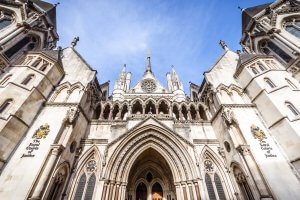Can DWP Take My Compensation?

Contact
Table of Contents
Universal Credit Claims and Personal Injury Compensation
Under current Universal Credit rules, individuals are generally not entitled to claim Universal Credit if they have capital exceeding £16,000.
However, there are important exceptions to this rule, particularly where compensation has been received as a result of a personal injury claim. In these cases, certain amounts may be legally disregarded when calculating eligibility for benefits.
When can personal injury compensation be disregarded?
The Universal Credit Regulations 2013 (Regulation 75(1) and (4)) state that if a sum is awarded or agreed in consequence of a personal injury, and is held in trust, both the capital and any income generated from the trust are to be disregarded when assessing a person’s entitlement to Universal Credit.
This rule is grounded in fairness. It recognises that individuals should not lose access to benefits simply because they have received compensation for harm they have suffered.
However, the legislation does not provide a precise definition of what qualifies as compensation “in consequence of a personal injury”—leading to uncertainty in more complex claims.
Common issues with personal injury trusts
Specialist companies often set up personal injury trusts to help protect compensation awards from affecting benefit entitlement. However, in some cases, it is unclear whether the compensation truly relates to a personal injury.
One grey area arises in claims against the Home Office for unlawful detention. Individuals—often asylum seekers—may bring claims for false imprisonment, sometimes accompanied by claims for psychiatric injury, aggravated damages, and even exemplary damages. Settlements are often made out of court, and it can be difficult to determine how the total compensation award is allocated between the various heads of claim.
Case law: Somasuntharam v Secretary of State for Work and Pensions
This issue was examined in the case of Somasuntharam v Secretary of State for Work and Pensions (Ref: SC154/18/03105), heard by the First-Tier Tribunal (Social Entitlement Chamber).
Case Background
The Appellant, an asylum seeker, was unlawfully detained by the Home Office and suffered significant psychiatric harm. In October 2015, he received a £40,000 out-of-court settlement, which included:
- Damages for false imprisonment
- Psychiatric injury
- Aggravated damages
After legal fees and expenses, £26,526 remained, which the Appellant placed into a personal injury trust on professional advice. He later applied for Universal Credit, but the Department for Work and Pensions (DWP) refused the claim, citing capital above the £16,000 threshold.
Tribunal Findings
The Tribunal agreed on several points:
- Psychiatric injury compensation was clearly in consequence of a personal injury and should be disregarded.
- Damages for false imprisonment (also called “basic damages”) were not in consequence of a personal injury and should be counted.
- Aggravated damages were disputed.
The DWP argued that aggravated damages could not be classified as personal injury compensation. However, the Judge disagreed, relying on Thompson v Commissioner of the Metropolis [1997]. The Judge found that in this case, the aggravated damages did stem from the psychiatric injury and were therefore to be disregarded.
As a result, the Appellant’s capital—after excluding the personal injury-related damages—fell below £16,000, and he should have been eligible for Universal Credit.
Key Takeaway
Each case must be assessed on its individual facts. There is no hard-and-fast rule for when aggravated damages qualify as personal injury compensation. In out-of-court settlements, it’s often necessary to examine “without prejudice” correspondence between the parties to understand how the total award was calculated.
Trust Structure: Discretionary vs Bare Trusts
The Appellant also argued that his compensation was held in a discretionary trust, which would have had different implications for benefit entitlement.
However, the Tribunal concluded that the trust was a bare trust, not a discretionary one. A discretionary trust involves a duty on trustees to decide which beneficiaries receive what, as set out in Mettoy Pension Trustees Ltd v Evans [1991]. In this case, the Appellant was the sole named beneficiary, meaning the trust lacked the key features of a discretionary trust.
Only sums within the trust that were awarded in consequence of a personal injury could be excluded from the Universal Credit capital assessment.
Need Expert Advice?
If you’ve received a compensation award and are concerned about how it may affect your entitlement to benefits, Osbornes Law can help.
We advise on:
- Setting up personal injury trusts
- Interpreting complex settlements
- Challenging DWP decisions
- Protecting your entitlement to Universal Credit and other benefits
Contact us today for expert, confidential advice.
Share this article
Contact us today
More from WilliamVIEW ALL
- 30.1.2025
Osbornes Wins Judicial Review on Legal Aid Fees
Osbornes successful in judicial review of Lord Chancellor over legal aid fees for Welfare Benefits On 28 January 2025 the High Court...
Read more - 30.7.2024
Single Mother Wins in High Court Homelessness Challenge
Claim for judicial review against Redbridge Council This case involved a claim in the High Court for judicial review against...
Read more - 13.9.2023
Successful homelessness judicial review case against Redbridge Council
This matter involved a claim in the High Court for judicial review against Redbridge Council for failure to comply with...
Read more - 21.4.2023
Success in Court of Appeal in child disability...
The Court of Appeal has today handed judgment in the case of Harrington v Secretary of State for Work and...
Read more - 20.1.2023
High Court finds Westminster Council’s Housing Scheme...
Westminster City Council’s housing allocation scheme found to be unlawful The High Court has today handed down judgment finding...
Read more - 14.11.2022
Housing allocation case questions lawfulness of council’s...
Until February 2022, the social housing allocation scheme for the London Borough of Newham allowed people who lived outside the borough...
Read more - 5.8.2022
Legacy benefits uplift: appeal granted by Court of...
Introduction to the case On 18 February 2022 the High Court dismissed the case brought by Osbornes Law on behalf of 4 claimants...
Read more - 10.6.2022
Housing Disrepair Claim for Leaking Pipe
Our solicitors at Osbornes Law successfully assisted a client in resolving a severe disrepair claim involving water leaks, damp, and...
Read more - 15.8.2021
Housing Disrepair Due To Persistent Dampness
Serious disrepair issues Our solicitors at Osbornes Law have successfully settled a disrepair claim on behalf of a local authority...
Read more - 23.12.2020
EU Nationals with Pre-Settled Status entitled to benefits...
Court Judgment means EU Nationals with Pre-Settled Status can access benefits and housing On 18 December 2020 the Court of Appeal handed...
Read more - 22.12.2020
Housing Disrepair Claim for Disabled Tenant
Background to the Case Osbornes Law were instructed by a disabled tenant who had been decanted from her temporary accommodation...
Read more - 20.11.2020
You are homeless because you are in shared...
It is well established that shared facilities are not suitable for families with children as long term accommodation. The client...
Read more - 15.9.2020
Housing Disrepair Against Local Authority
Successful Claim of Disrepair Against Local Authority Osbornes Law, has successfully settled a significant housing disrepair claim on behalf of...
Read more - 30.3.2020
I have a disrepair issue can I withhold...
Withholding rent is not your best course of action I see the logic in using the non-payment of rent as...
Read more - 15.10.2019
Housing Disrepair Claim in Notting Hill
Successful settlement of Housing Disrepair Claim William Ford, a partner in Osbornes Law’s Housing and Social Care Department, has...
Read more - 20.6.2019
Housing Disrepair Claim for Vulnerable Family
Our solicitors at Osbornes Law successfully assisted a client in resolving a challenging housing disrepair claim involving severe damp, leaks,...
Read more - 22.5.2019
Tenancy Deposits and Prescribed Information
Background to the case A tenancy agreement breach can occur when a landlord or tenant fails to comply with their...
Read more - 16.4.2019
Racism in Social Housing Allocation Scheme
Introduction To The Case The case of R (Gullu) v the London Borough of Hillingdon and R(Teresa Ward and...
Read more - 25.3.2019
Homelessness- The suitability of bed and breakfast accommodation
There is tremendous pressure on local authorities to house individuals and families for many reasons including unaffordable private rents and...
Read more - 5.11.2018
Court of Appeal Clarifies the Definition of ‘Landlord’
It is now not uncommon for home owners to enter into company let agreements with property companies who are authorised...
Read more - 5.10.2018
Housing Disrepair Claim for Structural Damage
Our solicitors successfully represented a client in a disrepair claim against a landlord involving structural damage and severe damp in...
Read more - 23.9.2018
How to deal with a Closure Order and...
Over the last three years since the Anti-Social Behaviour Crime and Policing Act 2014 came into force Local Authorities and other...
Read more





















